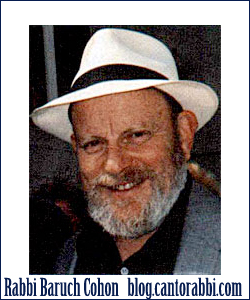TEN STATEMENTS – A Shavuot message by Rabbi Baruch Cohon
This week we celebrate a wonderful holiday that is sadly neglected lately. The holiday is Shavuot, called The Feast of Weeks in English. While it may lack the family festivities of a Seder, or the child-centered fun of Hanukkah, Shavuot has unique importance. We should reinvigorate it.
Coming just 7 weeks after Passover, Shavuot commemorates the Israelite arrival at Mount Sinai to receive the Torah. It is also called Yom haBikurim – the Day of the First Fruits – because once the people of Israel settled in their land and began raising crops, they brought the first fruits of their harvest to Jerusalem on this spring day, to express their gratitude for the earth’s bounty. Traditional Jewish custom has us eating dairy food on this holiday. In fact some congregations celebrate with a Kiddush luncheon featuring cheesecake and ice cream.
But first comes the observance of receiving the Torah. Synagogue services for Shavuot include the ceremonial reading of the Ten Commandments with their special importance dramatized by the whole congregation standing to hear them. Significantly, this famous text is known in Hebrew as Aseret hadibrot – the Ten Statements. Statements, not commandments. Our sages wanted to make sure that we would not get the idea that these were the whole Torah. Indeed, Jewish lore counts a total of – not just 10 — but 613 mitzvos. 248 are positive, the same number as the parts of the human body, and 365 negative like the days of the solar year. Some commentators point out that the Ten Statements we read on Shavuot contain exactly 620 letters, one for each of the Torah’s commandments plus 7 more that the rabbis added.
The stirring narrative in Chapters 19 and 20 of the Book of Exodus describes the entire nation gathered at the foot of Mt. Sinai while G-d speaks to them directly. Stricken with awe, they pull away from Divine contact. They ask Moses to relay any further messages to them. And so he does, for the rest of the Torah.
By whatever means we acquired these Ten Statements, we are lucky to have them. Read them in the Bible, or read them in the lobby of the Supreme Court. And don’t let anyone take them down. They violate no American church-state prohibitions, because they do not legislate any “establishment of religion.” They don’t tell us to be Jewish, or Catholic or Hindu or any other faith. They simply state some rights and wrongs. Granted, the first two of the Big Ten actually mention religion, acknowledging that there is a G-d in the world who delivered the slaves from Egypt, and prohibiting idolatry. Reading them, we see that no specific observance is required. So G-d is there but you don’t have to do anything about it. We should also recognize that idolatry can take many forms – from ancient heretics burning sacrifices in front of statues, to modern cynics worshiping mental idols like wealth or political power.
The other eight Statements either validate good behavior or caution against evil. What do they say?
Don’t perjure yourself.
Take a day off once a week, not only for yourself but for any employees and resident aliens and even for your animals.
Honor your parents.
Don’t commit murder, or adultery, or theft.
And don’t testify to a lie against another human being.
Finally, teach yourself not to covet. Jealousy, desire for what someone else has, only motivates crimes to enable us to take it. In Biblical terms it could be a house, a wife, a servant or a donkey. Today the caution still applies, whether it is money, fame, influence or sexual attraction. Don’t covet.
This Wednesday, in the synagogue or at home, take a few minutes to read the Big Ten. They’re worth it.
And enjoy your cheesecake!


